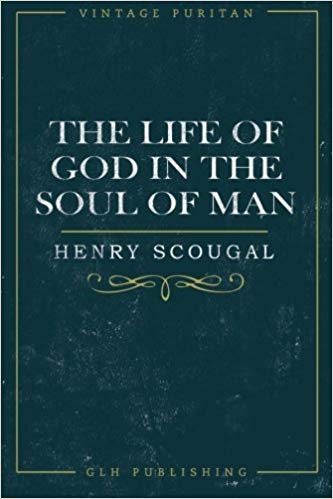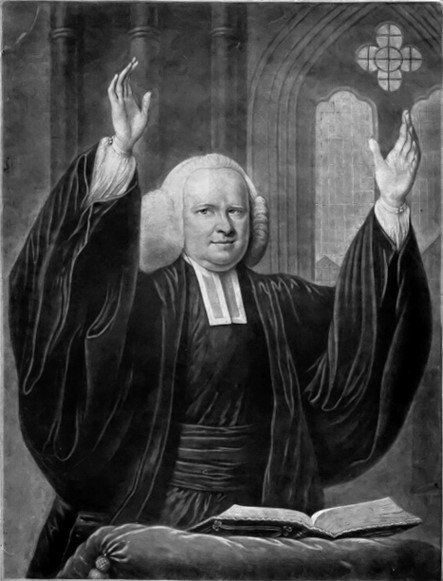
Reminiscing on Henry Scougal’s work The life of God in the soul of man, George Whitefield noted, ‘I never knew what true religion was till God sent me this excellent treatise’. That such a spiritual giant as Whitefield should speak so highly of Scougal’s work should surely compel believers today to seek out and read for themselves such an esteemed composition on ‘true religion’.
The life (as I shall abbreviate its title) is a relatively short treatise and was not written for public consumption or publication. Instead, Scougal simply sent it to a ‘dear friend’ as a means of encouragement and instruction in the Christian life. It was first published in 1677 and rightly hailed as a classic of Christian devotional literature.
This treatise comprises three parts and I shall present this treasured work in a series of three articles.
Henry Scougal
Henry Scougal was born in Scotland in 1650 at Leuchars, Fife. His father Patrick was a minister of God’s Word, and Bishop of Aberdeen from 1664 till his death in 1682. Henry entered the University of Aberdeen at the not uncommon age of fifteen. He excelled in his studies and graduated in 1668. The following year he was made a professor of philosophy in his alma mater.
He was ordained minister of the parish church of Auchterless, in Aberdeenshire, in 1672, but two years later returned to Aberdeen to take up the prestigious post of professor of divinity. He died in the Lord at the tender age of twenty-eight. The life is a fitting memorial and tribute to his faith and devotion to the Lord Jesus Christ, and continues to bear fruit to God’s praise and glory.
A word in season
Scougal declares his intention at the outset. He notes that ‘the advancing of virtue and holiness, which I hope you make your greatest study’, was his special business as a minister.
Writing out of a deep pastoral love and concern for his ‘dear friend’, he explains that ‘true religion is a union of the soul with God, a real participation of the Divine nature, the very image of God drawn upon the soul, or, in the apostle’s phrase, it is “Christ formed within us”’.

Scougal’s Christ-centred message is a word in season for the church of Christ today, for all those washed in the blood of the Lamb in these degenerate and licentious times. His biblical wisdom makes one thing clear: those who love the Lord are born again and have been called out of this fallen world to a life of self-sacrificial and obedient service in the kingdom of God.
The Word of God is categorical that each and every believer was predestinated in eternity past ‘to be conformed to the image’ of the Lord Jesus Christ. Therefore, all whom God calls in his sovereign grace, he justifies, sanctifies and will without question glorify (Romans 8:29-30; Hebrews 2:11).
Scougal’s valuable little treatise was a timely reminder of these precious truths to a fellow believer in seventeenth-century Scotland. It fired a burning desire for mission and holiness in such men as George Whitefield, Jonathan Edwards, the Wesley brothers and countless others. May his words similarly edify and inspire his readers in our own day!
What true religion is not
‘I cannot speak of religion’, writes Scougal, ‘[without lamenting] that, among so many pretenders to it, so few understand what it means; some placing it in the understanding, in orthodox notions and opinions’. Mere intellectual assent, and a knowledge of Holy Scripture, Confessions of Faith and Catechisms, is not the heart or essence of the Christian faith.
You will recall our Lord’s warning to the spiritually dying and loveless church in Ephesus (Revelation 2:1-7). In spite of their biblical orthodoxy, patience, labour and discipline, they were admonished for losing their first love — their love for Christ and concern for perishing souls. This remains an ever-present warning to the church militant.
‘Others’, writes Scougal, ‘place [true religion] in the outward man, in a constant course of external duties, and a model of performances; if they live peaceably with their neighbours, keep a temperate diet, observe the returns of worship, frequent the church, or the closet [for prayer], and sometimes extend their hands to the relief of the poor, they think they have sufficiently acquitted themselves’.

Such a description aptly describes the majority of the visible church in our world today. How many tragically deluded folks do you know, who attend a mainstream church and yet remain in darkness, wrongly thinking they are saved through association with the church or though acts of worship and fellowship?
Scougal’s portrait also provides a timely warning against all those sects that teach salvation by meritorious works instead of grace alone.
Thirdly, and lastly, he points out that yet others ‘put all religion in the affections, in rapturous heats and ecstatic devotion’. His words of wisdom caution us against the Charismatic and New Age movements, that have bred superstition and led so many grievously astray in our own generation.
The Divine life
After outlining what true religion is not, Scougal proceeds to define its true nature and manifestation. Firstly he says, ‘I choose to express it by the name of life, because of its permanence and stability’. Although he plainly acknowledges that ‘this Divine life continueth not always in that same strength and vigour’, he resolutely and correctly insists that it can never be wholly extinguished.
He reminds his readers that the love, adoration and reverence which every true believer renders to God are not born out of fear of judgement or a guilty conscience, but ‘are the proper emanations of the Divine life, the natural employments of the new-born soul’.

He continues: ‘though holy and religious persons do much eye the law of God, and have a great regard unto it, yet it is not so much the sanction of the law as its reasonableness, and purity, and goodness, which do prevail with them’. Poetically, Scougal asks:
‘Who shall prescribe a law to those who love?
Love’s a more powerful law which doth them move.’
God the author
He explains to his friend that true religion has God as its fountain and author, and was ‘wrought in the souls of men by the power of his Holy Spirit’. Moreover, it was ‘a resemblance of the Divine perfections, the image of the Almighty shining in the soul of man: nay, it is a real participation of his nature, it is a beam of the eternal light, a drop of that infinite ocean of goodness; and they who are endued with it may be said to have “God dwelling in their souls” and “Christ formed within them”.’
‘The root of the Divine life’ Scougal continues, ‘is faith’ — faith in Jesus Christ alone as Redeemer, Mediator and Lord. And ‘the chief branches are love to God, charity to man, purity and humility’.
This love of God, he reminds us, ‘is a delightful and affectionate sense of the Divine perfections, which makes the soul resign and sacrifice itself wholly unto him, desiring above all things to please him, and delighting in nothing so much as in fellowship and communion with him, and being ready to do or suffer any thing for his sake, or at his pleasure’.
By purity, I understand Scougal to mean that believers should not be overtly concerned with the temporal and the transient, but should instead focus their energies and concerns on the spiritual and eternal.
Similarly, humility is an essential quality and characteristic of those in whom the Holy Spirit dwells. There is no place for the proud and conceited person in the true church of God. The Lord Jesus makes this crystal clear to us in the Gospel accounts.
Furthermore, the love and heartfelt gratitude and devotion, which every born-again man and woman has to God are a ground of assurance, being, says Scougal, ‘a sure pledge that [their] felicity shall be perfected and continued to all eternity’.
Exemplified by the Saviour
Scougal completes the first part of his discourse by demonstrating that ‘the power and life of religion may be better expressed in actions than in words’, and demonstrates how this was ‘perfectly exemplified in the holy life of our blessed Saviour’.
‘Follow me’ is Jesus’ command to us all, and Scougal urges us to emulate our Lord’s diligence in doing his heavenly Father’s will; his patience in bearing it; his constant devotion to God the Father; his compassion on all in need; his purity and his humility.
He concludes part one of his discourse with a prayer: ‘Oh! that the holy life of the blessed Jesus may be always in my thoughts, and before mine eyes, till I receive a deep sense and impression of those excellent graces that shined so eminently in him. And let me never cease my endeavours, till that new and divine nature [shall] prevail in my soul, and Christ be formed within me’. May each one of us say Amen to that!







